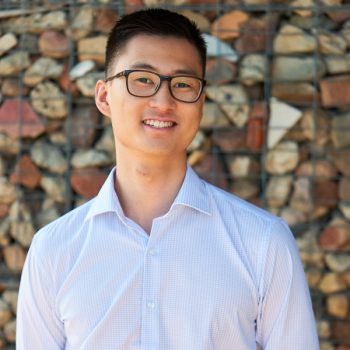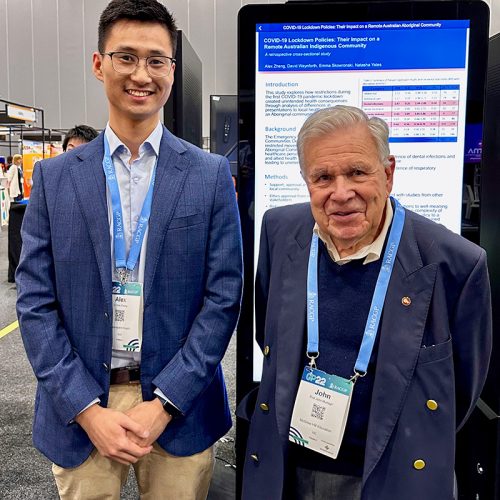2021 GPSN Chair Alex Zheng knows that it’s the mileage, not the years, that count. Having completed medical school on the Gold Coast and internship in Brisbane, he now finds himself back home in Sydney.
However, he returns a much more rounded person, with an impressive set of skills and knowledge evolving during his time at university and fostered through GPSN.
“Talking to patients and other members of the healthcare team requires different approaches, and I think GPSN set me up well for that because it involved communicating with the local teams, the national team, and GPRA,” says Alex.
“This has definitely helped me in so many ways for my medical career. GPSN was a massive part of my time in medical school, and I wouldn’t have been able to achieve half as much of what I did without it.”
One of these achievements was being involved in a research team and going to Melbourne to present the work at the RACGP’s GP22 conference in November last year.
And the opportunity simply came about by keeping in contact with a general practice professor who he had met through a local GPSN event.
“Myself, a general practice professor, a statistics professor from Bond University, and a GP worked on the drafting, data analysis, and interpretation, which took me the better part of 18 months to complete from formulation to submitting it to the RACGP.”
“We wanted to see how GP presentation rates might have changed due to the COVID-19 lockdowns. Ironically, rates of respiratory illnesses went down – people staying at home, washing their hands, and not mingling can do wonders in terms of stopping the spread of those viruses.”
But the icing on the cake was chatting with statesman of general practice and distinguished author, Professor John Murtagh AO.
“He kindly gave me five minutes in his day to have a chat about the reason why I was there. It was a bit of a fanboy moment for me and after we took some photos, I immediately told my friends.”
Whilst Alex is nostalgic of his time spent at GPSN, he says it’s encouraging to see the growth of the network.
“I definitely miss it, and I keep in touch with old mates who have now since graduated, but it’s good to see the new generations of students who are now involved with GPSN and watch the society develop.”
For those starry-eyed first year students starting out to the students preparing to make the transition to junior doctor, Alex asks for one thing: be open-minded to new things that come your way.
“There’s a very big difference between enjoying studying a particular specialty and actually working in it. The role that you play as a junior doctor can be significantly different to that of the registrar, and again, different as a consultant. Some people don’t realise that and can get caught up on the idea of the end goal,” he says.
“Particularly in a field like medicine, where you’re always moving workplaces and locations, the unexpected will happen along the way. It’s not a matter of if, it’s a matter of when. So, it’s important to get as much experience as possible and take the opportunities that you can and see where life takes you.”
“That’s speaking from personal experience – transitioning from student to junior doctor and hopefully in a few years down the line, entering specialty training, it’s something that has become very apparent to me since.”





